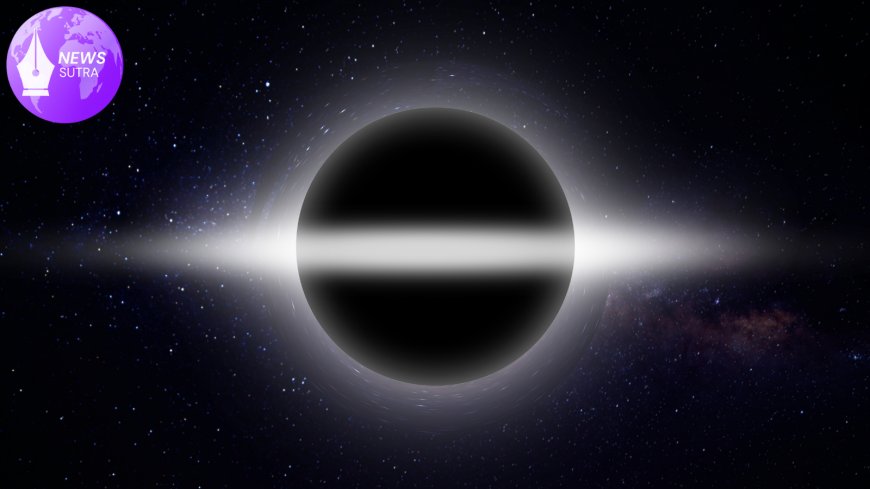Ancient Black Hole Discovery Sparks U.S. Space Policy Debate in 2025
A 13.3-billion-year-old black hole discovery is fueling U.S. space policy debates in 2025, with Congress weighing NASA funding and global leadership stakes.

A newly detected 13.3-billion-year-old black hole—one of the oldest ever observed—has reignited debates in Washington about the direction of U.S. space exploration and the future of NASA’s funding. The discovery, confirmed through joint efforts by NASA and international observatories, underscores both the scientific significance of deep-space research and the political stakes surrounding it.
A Window Into the Early Universe
Astronomers describe the black hole, detected by instruments linked to the James Webb Space Telescope, as a “cosmic fossil” offering rare insights into the universe’s first billion years. Its extreme age suggests galaxies and black holes may have formed faster than current models predict.
Dr. Elena Martinez, an astrophysicist at the Space Telescope Science Institute, said in an interview,
“This detection pushes our timeline for black hole formation. It proves that the universe matured much more rapidly than we thought.”
The finding has major implications for astrophysics but is also shaping a broader political conversation in the United States.
Congress Weighs NASA’s Budget
The discovery comes at a critical time for U.S. space policy. The Biden administration had previously signaled cautious spending growth for NASA, while congressional Republicans have pushed for more ambitious missions—including expanded deep-space observation and defense-related space technology.
A House Science Committee staffer, speaking on background, noted:
“The Webb discovery is a perfect example of why sustained investment matters. Without stable funding, we risk ceding leadership in space science to other nations.”
On the other side, fiscal conservatives argue that ballooning federal deficits require tighter controls. They question whether billion-dollar observatories are justifiable when domestic priorities—such as healthcare and infrastructure—remain under strain.
Policy Implications Beyond Science
This black hole’s discovery is not just a scientific milestone but a policy lever. The administration has reportedly considered using the breakthrough as a symbolic case for sustained research spending, framing it as an investment in U.S. global leadership.
Political analysts highlight that the space debate now intertwines with national security. As China accelerates its space program—including moon and Mars ambitions—American lawmakers increasingly view funding decisions as strategic competition, not merely scientific exploration.
NASA’s Funding Trajectory in 2025
In recent hearings, NASA Administrator Bill Nelson stressed that missions like Webb prove the U.S. remains at the forefront of discovery but warned against complacency.
“If we slow down now, the momentum shifts overseas. This black hole shows us what’s at stake in the race for knowledge,” Nelson said.
Appropriations talks in Congress are expected to intensify this fall, with proposals ranging from a 5% budget boost for space science initiatives to calls for freezing funding at 2024 levels.
Broader Impact: Education and Inspiration
Beyond Washington politics, the discovery is being framed as an opportunity to inspire younger generations. Universities across the U.S. are preparing to incorporate new data into astrophysics curricula, while NASA outreach teams are expected to highlight the find in public engagement programs.
Economic studies suggest that for every dollar invested in space science, broader technological and industrial benefits ripple through the economy—from engineering advancements to STEM education.
The Public Eye on Policy
Public opinion remains divided. A recent Pew Research survey indicated that 61% of Americans support maintaining or expanding space funding, while 30% believe current spending is excessive. This divide reflects broader polarization over federal priorities.
Still, the extraordinary age of the black hole has captured public imagination in ways few space discoveries do. Social media trends show rising interest in cosmic phenomena, with hashtags tied to the discovery reaching millions of impressions within 48 hours.
The Crossroads of Science and Politics
The debate over NASA’s funding has always been about more than numbers. It represents a tug-of-war between visions of America as a leader in cosmic exploration and concerns about balancing budgets. The 13.3-billion-year-old black hole now stands as a symbol: a reminder that the universe’s mysteries remain vast, but unlocking them requires both political will and public trust.














